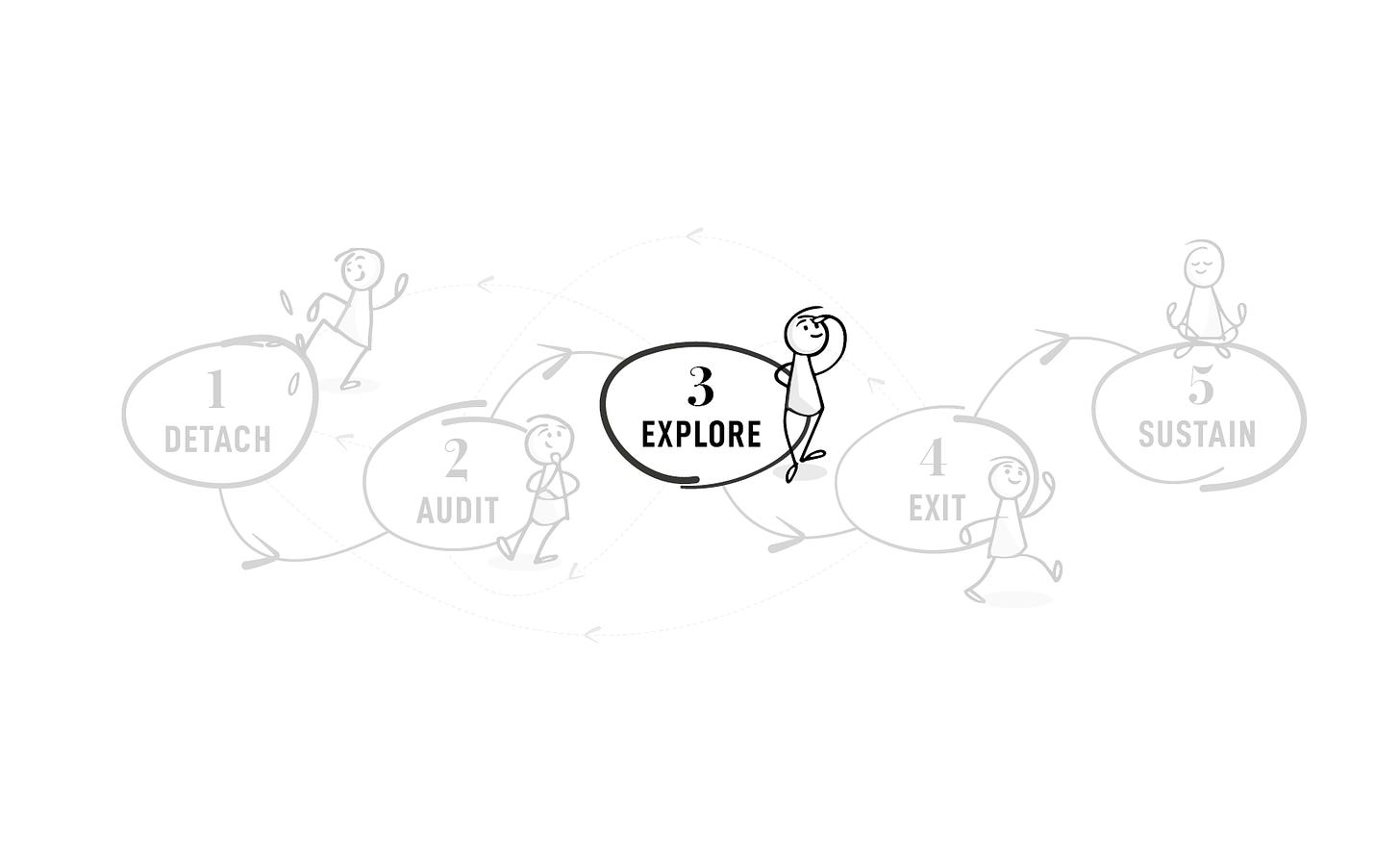I’ve spent the last few weeks spending time with startup founders. I’ve literally talked to 70 of them one-on-one on Zoom calls and met them in person at events around the country.
Founders are a funny breed, especially when contrasted with the entrepreneurs I bring to events.
The people in the company are professional, organized, and outwardly confident, but I know that inside they are wondering, “Why am I here?”, “Am I right for being here?”, “Is this a trap?”
Startups, on the other hand, tend to fly by the seat of their pants. They are overly enthusiastic, passionate, in sales mode, and evangelical about their solutions.
They know this event is an opportunity, but most of them have been here before, at corporate events.
They know their place. Corporations have the power: capital, pilots, introductions, follow-up meetings.
But in my experience, a lot of those entrepreneurs – at least the ones who attend my startup events – are pretty envious of founders. They envy their autonomy, their passion, their sense of purpose, their sense of speed.
As we get older, we often value these things more than the financial aspect of our careers (even though most of us rely heavily on the financial aspect!).
Many startup founders have a “wild” nature. They are disruptors, break the norms, challenge, fail, and adapt. Few people understand them, even their families. Most are driven by a mission and have tunnel vision when it comes to execution.
This is why many startups and big companies form uneasy alliances.
Success in business requires pragmatism because you can’t control it. Strategy, vision, culture, budget, team, management, etc. are all controlled by others. It’s rare for one person to control it.
Once you leave that kind of job and get a taste of that autonomy, it can be hard to come back, because the transition to autonomy is very gradual, over years, maybe decades. You may not have noticed it.
When I started my corporate life, I didn’t expect much power and autonomy (thank goodness). But the longer I stayed, the more frustrated I became. One day, a project that was important was put on hold the next day, the budget was cut for no reason, everything was stopped due to restructuring, and a new boss told us (the kids) what to do next.
I think I had many flashbacks back then. I’m sorry.
Many entrepreneurs dream of running their own business or startup.
Yes, for years and years.
Eventually I left to build one, but it didn’t work. Maybe it’s because I’m not like the wild founders I like to work with today. I couldn’t help but tinker and make it perfect, and I couldn’t help but see the risks and try to ‘manage’ them. I wanted everything to map into a nice linear plan.
But many entrepreneurs become great founders. Niall Riddell, on the Corporate Escapology podcast:here and here) was one of those a few months ago. But as he said, he’s a different type of founder, someone who learned how to be a founder by practicing in the safety of a company, rather than jumping in without a clue.
Corporate Escape Theory Book (Available for pre-order) is to prepare like Niall did. Because it is dangerous to jump into a fantasy that you have not experienced before without properly testing it in a safe workplace.
But this book is also about opening your mind to opportunities, and breaking stereotypes and narrow thinking. The world looks quite different from outside the company, and a lot has probably changed since you left.
We tend to see startups as just the unicorn apps we all have on our phones. And the founder archetypes are Elon, Zuck, Jobs, etc. In fact, there are many jobs that entrepreneurs can uniquely perform in small businesses, including startups. Their experience allows them to be advisors, mentors, board members, experts, consultants, project managers, business development…
Of course, there are many different types of small businesses that entrepreneurs can succeed in, from the unicorn tech types we’re obsessed with to social enterprises, consulting firms, agencies, coaches, franchises, charities, e-commerce, and more.
The third part of the escape route is exploration. Be open-minded, get out of your head, network, cast a shadow, give yourself free time. Explore and experiment properly.


Maybe the startup life is right for you. Or maybe it’s a starting point for exploring something else.
This is your opportunity to build the life you want, and it’s worth the investment.
++++++++++
This week we have a new guest on the Corporate Escapology podcast. Duncan Blake. For over 30 years, Duncan led bp’s brand team and developed the identity we know today. But when he left bp, he took his time to explore. Not to go into consulting or other corporate pursuits. And he decided to pursue his passion for cooking. He’s pretty far removed from corporate branding, but he’s taken much of what he learned from his corporate career into what he calls his “second chapter” to increase his chances of success. Watch and listen here.
youtube:
Spotify:


